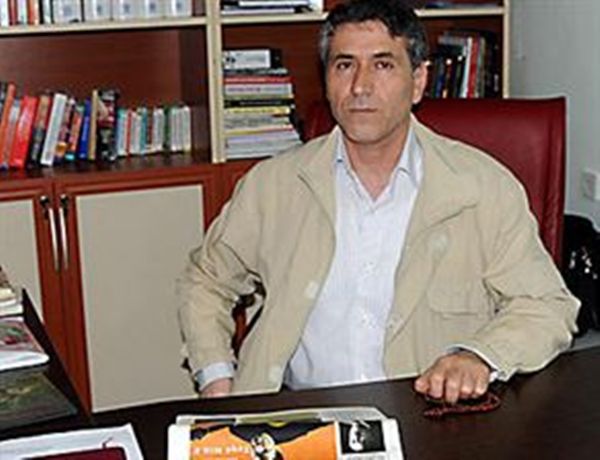
Once Feared Kurdish Hizbullah Making Transition to Politics in Turkey
Publication: Terrorism Monitor Volume: 10 Issue: 12
By:

Kurdish Hizbullah, a violent Islamist movement that is known for its violent clashes against the Partiya Karkeren Kurdistanhas finally made a much anticipated announcement that it will establish a political party. Turkey’s Hizbullah group largely abandoned its armed struggle back in 2004 (see Terrorism Monitor, January 25, 2008).
Sitki Zilan, a well-known lawyer and unofficial spokesman of Kurdish Hizbullah, announced that the new party will be based in Diyarbakir. “As we define the party as ‘Kurdistani,’ our target is going to be the voters in the Kurdish region. We define the party as ‘Kurdistani,’ but it does not mean that the party is going to be the party of Kurds because in the Kurdish region other groups live too,” the group said (CNNTurk, April 30). Zilan told Jamestown that the party will be against any forms of violence, including the PKK’s armed struggle. The main agenda of the party will be justice and freedom: “We want to challenge Turkey’s religious parties, such as the AKP party [the ruling Adalet ve Kalkınma Partisi], with our Islamic arguments and challenge the Kurdish parties with our Kurdish arguments,” Zilan noted, adding that the new party will be Kurdish nationalist and moderate. [1]
When asked whether the Islamic party will be the party of Kurdish Hizbullah, Zilan expectedly denied this and said, “Religious people will dominate the party; however, this party will not be the political wing of Kurdish Hizbullah. We are neither against the Kurdish Hizbullah nor the PKK, nor are we obligated to act as their political wing. We do not act based upon any request or the direction of any movement” (CNNTurk, April 30).
It is no coincidence that when Sidki Zilan announced the establishment of a religious Kurdish party, journalists asked whether the political party would be affiliated with Kurdish Hizbullah because the idea of establishing such a party has been circulating among the members of Kurdish Hizbullah in recent years. Back in 2011, Sidki Zilan mentioned on Turkish television that the Kurdish Hizbullah should consider establishing a political party (NTV, January 8, 2011).
The reasons for Zilan’s denial of the proposed party’s affiliation with Kurdish Hizbullah are largely political. Zilan himself admits that Kurdish Hizbullah is a political actor, which could lead such a political party. However, there are also many religious people in Turkey’s Kurdish region who are not affiliated with Kurdish Hizbullah. Thus the new party will need to be inclusive of all other Islamic religious groups (Haber Diyarbakir, May 9).
Zilan outlined why it is necessary to establish a religious Kurdish political party when there are already four Kurdish political parties in Kurdistan: the Barış ve Demokrasi Partisi (BDP – Peace and Democracy Party), the Hak ve Ozgurlukler Partisi (Hak-Par – Rights and Liberty Party), the Katalimci Demokrasi Partisi (Kadep – Participatory Democracy Party) and the Ozgurluk ve Sosyalizm Partisi (OSP – Freedom and Socialism Party). According to Zilan, because none of these Kurdish parties have an Islamic affiliation and all of them are secular and leftist, half of the Kurdish people do not vote for them. Conservative Kurds vote instead for Islamic Turkish parties, such as the Saadet Partisi (SP – Felicity Party), Halkın Sesi Partis (HAS Parti – People’s Voice Party) and the AKP. These voting patterns show the true potential for an Islamic Kurdish Party (Haber Diyarbakir, May 9).
Zilan also asserts that the pro-PKK BDP has become the party of the Kurmanci Kurds, a faction of the Kurdish community, and the AKP has become the party of the Sunni Zaza Kurds. Alevi Kurds, on the other hand, support the Cumhuriyet Halk Partisi (CHP – Republican People’s Party). Thus, Zilan believes that a new party with both an Islamic and Kurdish affiliation would attract voters from the Kurmanci and Zaza Kurdish communities who simultaneously identify with Islam and their Kurdish backgrounds. [2]
Establishing such a party, however, is no easy task. Kurdish Hizbullah is currently busy with the fact that its umbrella association, the Mustazaf Der (Association of the Oppressed), was shut down by the Turkish Supreme Court (dogruhaber.com.tr, May 12). Hizbullah is now debating whether it needs to organize yet another association to bring all of Hizbullah’s activities under one umbrella or whether the movement needs to establish a political party. People like Sidki Zilan argue that if Kurdish Hizbullah was a political party it would not be so easy for the government to shut it down. The counter argument to this view is that a political party would lessen Hizbullah’s ability to reach out to people who do not share similar views with the party. A leading figure in Kurdish Hizbullah told Jamestown that some Hizbullah leaders are concerned that the announcement was a bit premature and wonder whether it will negatively affect the Hizbullah movement. [3]
In response to the banning of Mustazaf-Der, Mehmet Goktas, one of the leading figures of Kurdish Hizbullah and the editor-in-chief of Dogru Haber (a Hizbullah-affiliated newspaper), wrote, “Those who think they could stop this river by shutting down the association will soon see that they are wrong. Those who think Kurdish Hizbullah requires umbrella organizations will see that they are wrong. Kurdish Hizbullah will form whatever types of organization that are necessary and will carry out whatever work is necessary” (dogruhaber.com.tr, May 18).
Kurdish Hizbullah organized a demonstration on May 27 in Diyarbakir to protest the shutting down of Mustazaf-Der, which is well known for organizing an annual public event to celebrate the birthday of the Prophet Muhammad attended by hundreds or thousands of people each year. However, many critics argue that the size of the crowd at these public events is never a fair indication of support for Kurdish Hizbullah because BDP voters also attend in order to celebrate the Prophet’s birthday (T24.com.tr, May 14).
Unlike the celebrations of the Prophet’s Birthday, the May 27 demonstration was designed to clearly show Kurdish Hizbullah’s ability to bring people into the street. Kurdish Hizbullah wanted to test their organizational abilities before announcing the establishment of a political party. The successful and unsurprising mobilization of hundreds of thousands of people in the streets led the movement to announce the launch of its new political party. On June 10, Hizbullah made the formal announcement of the formation of a new party to be known as Azadi Insiyatif (Freedom Initiative) (haberdiyabakir.com, June 10).
The emergence of an Islamic Kurdish political party will change Kurdish politics permanently because it will directly affect both the ruling AKP and the BDP. For this very reason, the secular BDP has lately inserted religious terminologies into its rhetoric and even organized protest Friday prayers to distance Kurds from state-controlled mosques. In addition, the Kurdish people are the most conservative people of Turkey and have been heavily politicized over the past three decades. A Kurdish Islamic Party would likely reduce the public support of the BDP, which would not make the PKK happy, and reduce the AKP’s support from the Kurdish region as well.
Emrullah Uslu is a Turkish terrorism expert who regularly contributes to the Istanbul-based English daily Today’s Zaman and Turkish daily Taraf.
Notes:
1. Author’s phone interview with Sitki Zilan, May 20, 2012.
2. Author’s phone interview with Sitki Zilan, May 9, 2012.
3. Author’s phone interview with a leading member of Kurdish Hizbullah, May 20, 2012.





